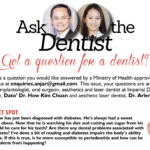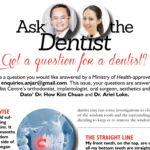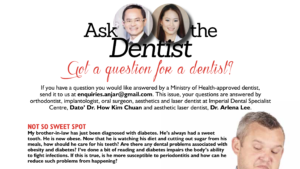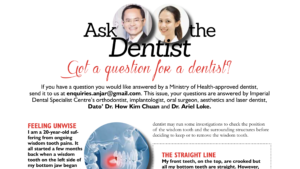“Each child has a different level of expertise and some of them are very raw and inexperienced and some are incredibly mature and experienced. So you just have to go with what they are rather than have some abstract technique that you’re going to try to apply to them.”
David Cronenberg
Kids are cute, but treating them? It is not difficult to treat them when you know them. Anxiety often arise from kids when they visit a dental clinic, perhaps it’s the drilling sound that makes them scared, perhaps is the dentists’ white coat, or perhaps it’s the dental instruments. The common way they express themselves is by crying, but not in all the cases.
Your dentist will categorize them into few categories from the moment they enter the dental office.
The ideal types are the cooperative ones of course. Most kids fall into this category. They show minimal apprehension and are reasonably relaxed during treatment. These children usually have a good rapport with the dentist and the dental team. Cooperative kids allow the dentist to work efficiently as they follow instructions and guidelines established.
The second type of children are those lacking cooperative ability. These include two groups of children – one being very young who are emotionally immature because of age, usually less than 2.5 years old. Another group are ‘special children’ with mental or physical deficiency or both. The severity of the condition will not allow them to cooperate like other children of the same age.
Interestingly, there are also the type of kids who are neither completely cooperative nor lacking cooperative ability, which is what we call potentially cooperative kids. So are they cooperative or not? They actually have the ability to cooperate but they don’t. This may be due to fears or any other factor which can influence the behaviour of children.
Uncontrolled behaviour is a type of behaviour in this category which is seen in a young child of age 3 to 6 years. It always characterized by tears, loud crying, physical lashing out, flailing of hands and legs. All are suggestive of a state of acute anxiety or fear.
Here is a typical behaviour of a child. He or she will always give defiant replies such as “I don’t need to”, “I don’t want to” or “I won’t”. They protest as they would do at home when they were brought to the dental office against their wish. Defiance can be passive as seen in older children approaching adolescence. They frequently become highly cooperative after the establishment of guidelines for their behaviour and gaining their confidence.
When a child is overprotected or living in an isolated area, they become timid. The moment they see strangers, they will hide behind a parent. They usually offer no physical resistance during dental treatment.
Some kids get tensed easily. They feel anxious but try not to show it. Their eyes may follow the movements of both the dentist and the dental assistant. Their voice may show tremor when they speak and their palms might be sweaty.
Do kids whine? Yes, they do! This type of kids will allow the dentist to perform treatment but will keep complaining of pain. Whining can be a compensatory mechanism to control their fear. The cry is controlled, constant, not loud, often no tears. The dentist always need to be extra patient with this type of child!
Kids express themselves not just by crying. As a dentist, in order to treat their mouth, we also try to minimize their anxiety so that they will not become an anxious patient in the future.
Written by:
Dr Leong Mei Ling is SEGi University’s first batch, graduated in 2011 and is currently working as Oral Health Advisor at Imperial Dental Specialist Centre. She participated in group research and competed among dental students in National Dental Student Scientific Conference 2016.







